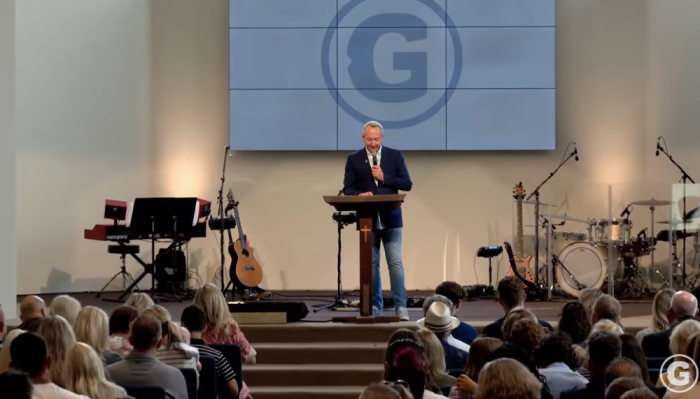Americans increasingly comfortable with church defiance of COVID-19 restrictions: survey

A new survey reveals that the American public is much more accepting of churches defying coronavirus lockdowns than they were when the pandemic first broke out in March.
Paul Djupe, an affiliated scholar with the Public Religion Research Institute, and Ryan Burge, a political science professor at Eastern Illinois University, collaborated on a survey asking 1,750 Americans for their views about the coronavirus pandemic in October. They had previously collaborated on a coronavirus-related survey in March, when they spoke to 3,100 Americans.
When asked if they agreed with the statement, “If the government told us to stop gathering in person for worship I would want my congregation to defy the order,” 34% of respondents who participated in the October survey agreed (with 16% strongly agreeing). By contrast, 21.8% of Americans surveyed in March said that they agreed (with 10.7% strongly agreeing) with their congregation defying in-person worship restrictions.
Meanwhile, the share of Americans who disagreed with churches’ defiance of worship restrictions dropped significantly from March to October. In October, 39.1% of Americans disagreed (with 25.8% strongly disagreeing) with the defiance compared to 55.6% (with 36.4% strongly disagreeing) in March.
Those who strongly disagreed with churches’ defiance of in-person worship restrictions made up a plurality of the respondents in March but by October, a plurality of respondents (26.9%) said that they neither agreed nor disagreed with defiance of worship restrictions.
The survey also analyzed the responses to the question based on political party affiliation, finding that support for defiance of coronavirus worship restrictions had increased among all party identifiers. “Our data suggest defiance is growing across the board. Even strong Democrats are urging a more defiant stance, though the growth among Republicans is much greater,” Djupe and Burge wrote.
According to Djupe and Burge, another factor explains the increased support for churches defying worship restrictions: adherence to the prosperity gospel, which teaches that “religious belief is a quid pro quo, returning a wide range of benefits for believers, especially health and wealth.”
“Prosperity gospel belief is also linked to opposition to state health orders, and the connection is easy to see: if the church is the instrument of personal health, then shuttering the church is a direct threat to personal safety during a pandemic,” they said.
Data collected by the researchers show that the correlation between adherence to prosperity gospel beliefs and the opinion that churches should defy worship restrictions was even stronger in October than it was in March. They measured adherence to prosperity gospel beliefs using a “three question index.”
They attributed the increased support for lockdown defiance among prosperity gospel believers to “the messaging they are hearing from religious and political sources,” including Republican politicians who “continue to take a freedom-first approach.”
“Agreement with prosperity gospel views has grown about 3 percent since March,” they said.
Other findings show a drop in the percentage of adults who believe “the government should tell churches and houses of worship that they should stop meeting in person to prevent the spread of the coronavirus.” While 66.1% of Americans agreed with that in March, 56% said the same in October.
As the idea that churches should defy in-person worship restrictions has gained ground since March, the idea that “hysteria over the coronavirus is politically motivated” has become less popular. In October, 22.5% of Americans strongly rejected that idea, an increase from the 14% who strongly disagreed with that assessment in March. The share of Americans who either agree or strongly agree with the idea that hysteria over the coronavirus was politically motivated dropped from 42.5% in March to 40% in October.
In their analysis, Djupe and Burge offered two theories to explain Americans’ changes in views about the coronavirus over the past seven months. The first theory contended that “people are responding to an elite messaging that combines with unorthodox Christian beliefs to promote an individualistic, go-it-alone style response,” an idea that they argue is “widespread enough to spell doom to efforts to inspire collective action against the behaviors that are spreading the virus.”
Their other explanation rests on the premise that “Trump’s gross mismanagement of the pandemic soured Americans on Trump as well as on government efforts to curtail the pandemic, which, strangely enough, redounded to the benefit of Republicans opposed to state action.” They concluded that “a bit of both explanations are in play.”
The survey comes as more states returned to strict lockdowns after reporting another surge in coronavirus cases since October.
After the Roman Catholic Diocese of Brooklyn and Agudath Israel of America sued, the Supreme Court ruled 5-4 on Wednesday to temporarily block New York’s restrictions on houses of worship, saying that the rules “cannot be viewed as neutral” and appear to violate the Free Exercise Clause of the First Amendment.




























